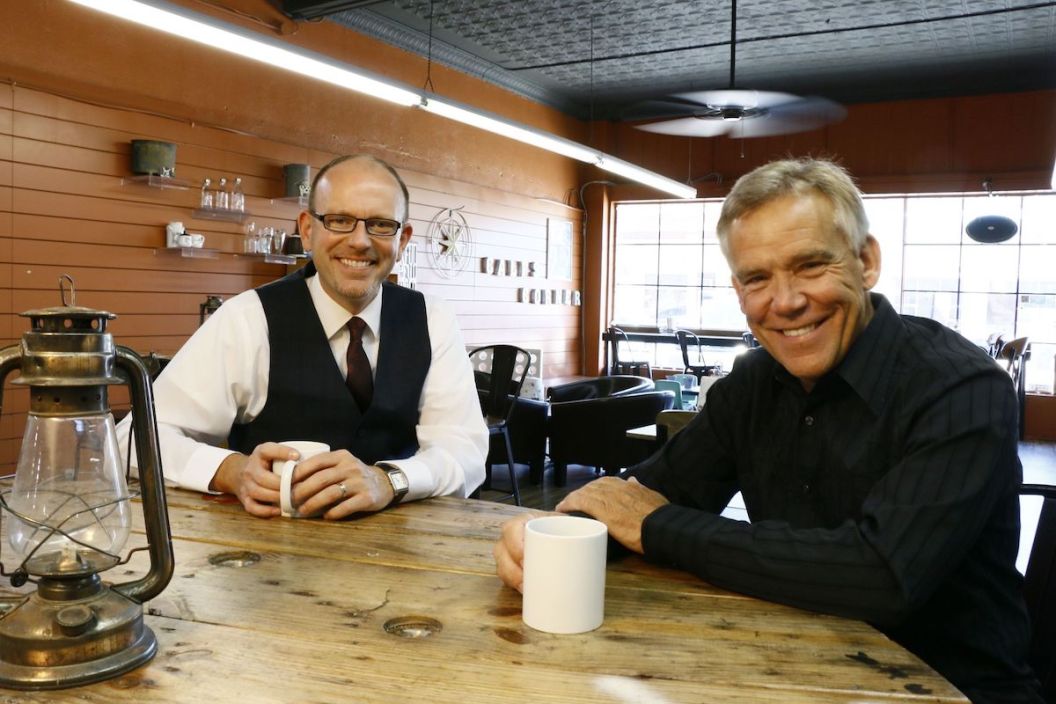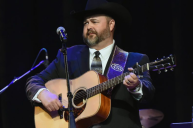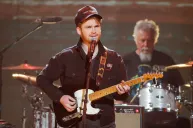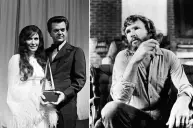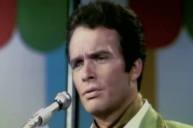If you haven't followed bluegrass, roots or Americana trends over the last three years, the name Merle Monroe might throw you for a loop. Which band member is Merle, and is he any kin to Bill Monroe? Even if you pick up quickly that it's two foundational names mashed together, there's more than one Merle worth honoring. Are we talking Haggard, Watson or Travis here?
After chatting with members Tim Raybon (lead vocals, guitar) and Daniel Grindstaff (banjo) and clearing up that the Merle in question is The Hag, not the namesake of MerleFest or the inspiration for Randy Travis' stage name, it became clear as day that the band name signals an allegiance to the sonic and storytelling elements learned from classic country and traditional bluegrass heroes.
"We've been friends for many, many years, and a lot of our influences are in authentic country and bluegrass music," Grindstaff told Wide Open Country. "So, the music the way that [Raybon] writes and he sings and the way that I play is based in Merle Haggard, Glen Campbell, George Jones, Ray Price and then of course people like Bill Monroe, the Osborne Brothers and Jim and Jesse McReynolds that had that country flair to the bluegrass side of it."
Merle Monroe's two band leaders pay tribute to their namesakes and other foundational acts in their own voice, without a lineup planned around hardcore country instrumentation or a stern focus on bluegrass' roots. And best of all, their band name opens the door for a namedrop-filled trip down memory lane.
"Merle Haggard and Bill Monroe were, in my opinion, two of the quintessential stylists in their music fields," Raybon said. "George Jones was great, Vern Gosdin was great, Conway Twitty was great and you know, Hank Williams is great. But I would probably say that in our lifetime, Merle Haggard was the quintessential writer, arranger, guitarist and singer to kind of come up with his own style of country, the Bakersfield kind of country that Buck Owens was part of. Merle Haggard probably gets more attributed to that than anyone. Then of course Monroe with the style of bluegrass."
Tributes to Twitty and the great Nashville songwriters behind many of his hits come subtly through how Raybon and Grindstaff structure their original material.
"If you'll notice that anything that Daniel and I put out, typically about 95 percent of the time when it gets to the chorus, you'll have a really high lead into it, or a high lift, if you will," Raybon explained. "We have really high harmonies to it. But this song plugger came in one day and was talking about Conway Twitty. He said, 'You know, I was pitching to Conway one time.' And if you follow Conway Twitty songs, Conway Twitty songs were the same. A majority of his songs had a really high lift in it. He always would say, 'If you're sending me a song, plug me a song or play me a song for me, you've got to get me where the money's at.' Daniel and I have always said that. You know, we always try to put high lifts into whatever we record."
As you might've suspected by now, Raybon's a sibling of Shenandoah lead singer, fellow grasser and Raybon Brothers bandmate Marty Raybon. Tim and Marty performed together from young ages in the American Bluegrass Express alongside older brother Rick and their dad, Kenny. (Rick passed away on July 31 at age 63 from throat cancer.) Tim and his family's band shared stages with many of the legends he lauds in song, from Monroe to Don Reno and the Lewis Family. And to give you an idea of bluegrass' teen prodigy situation in the late '70s, Tim first met Rhonda Vincent when he was 14 and she was 16.
Grindstaff is also a former bandmate of Marty's, setting the stage for future Merle Monroe bandmates to cross paths.
"The way that Marty had a hand in what we do is that's where me and Tim met," Grindstaff said. "I was working for Marty, and Tim would come out when Marty would be in between guys or have someone on vacation and step into the roll of singing a part or helping out. That's how me and Tim met and struck our friendship up."
Before that, Grindstaff had his own early career interactions with all-time great bluegrass pickers.
"I had become friends with people that worked for Jim and Jesse McReynolds while I was in high school," Grindstaff recalled. "By the time I was in my senior year, I went out for my first trip. They had a guy that had give his notice that was getting out of music into something else. My dream had always been from the time I started playing banjo at 12 years old to play the Grand Ole Opry. I just knew somehow God was going to make that happen for me. As crazy as that sounds, I just knew that that was something I had to do. I'd always loved those guys a lot and seen them on TV a lot. You know, Grand Ole Opry and Crook & Chase and Prime Time Country and the shows back then. And I had an opportunity to go to Columbia, Miss. with Jim & Jesse. They just wanted me to go out on that trip because the other guy had give his notice. It was pretty well kind of an audition. So I went on that trip and it went well, and I went to Virginia with them and it went well.
"The next thing I know, they had band uniforms," Grindstaff continued. "I was turning in the size of the boot I wore. I was in. The next thing I know, I was playing the Ryman Auditorium with them that July. In my opinion, for what I wanted to do, I started out on top. I started out with these two legendary figures of bluegrass. At that point in time, was I really good enough to be there? Probably not, but they saw potential in me. I worked so hard to not give them a reason to need anyone else, be that learning the songs or helping out on the road and just having a good attitude. I worked so hard at that just to kind of earn my keep. We became really good friends. Of course, I had been there about a year when Jim passed from cancer (in 2001). I stayed with Jesse, and I'm still friends with him today."
Grindstaff achieved his goal by playing around 40 or 50 Opry spots a year around the turn of the century with not just Jim & Jesse but also the legendary Osborne Brothers.
Read More: Bill Anderson Talks 'Thankful,' Carly Pearce and 60 Years as a Grand Ole Opry Member [Interview]
Nowadays, Raybon and Grindstaff are enjoying swift success off the back of two albums issued by Pinecastle Records: 2019's Back to the Country and 2021's Songs of a Simple Life. Standout material on the latter ranges from an original blast of positivity, "God's Still in Control," and Bakersfield-style single "Hello Sunshine" to the often-cut Don Gibson song "(I'd Be) a Legend in My Time" and classic Bill Anderson co-write "Saginaw Michigan."
"I think, if Daniel and I were honest about it, we'd probably say we're a little surprised at how quick it's taken off," Raybon admitted. "I would've never thought I would've have four or five No. 1 songs by now. We worked really hard, too. It's something you had to really work at. But we were very encouraged by the amount of success we've had."
